2014 Printz and Morris Predictions at the Half-Way Point
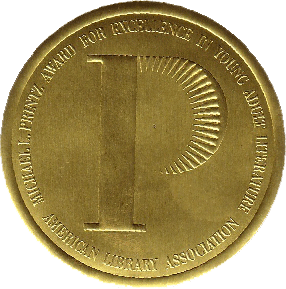
Every year we like to take a stab at what we imagine could be contenders for the Michael L. Printz award half-way through the year and then again a couple of weeks before the award is announced. What's been interesting this year is what a few of the blogs we like to follow for Printz-related predictions and discussions have been eerily . . . silent. People get busy, blogs fade away, but even in the general book world, it seems as though discussion of what could be a Printz contender this year is very, very quiet. So coming up with our guesses and reasons behind them will be interesting because we have very little to base those comments upon so far.
In addition to talking about Printz, we'll talk a bit about the Morris award, too. It's a great award and one that, unlike the Printz, can be a little looser in terms of what books might qualify since it does take reader appeal into consideration. It also takes into consideration the interest in seeing future works from the author, meaning that the books honored can be imperfect but show immense promise and talent.
Of course, we'd love if you weighed in, too. We're sticking to books that have been published between January and July 1, since that's all we've had time to read and discuss. We might throw in some books we think could be contenders in the second half of the year based solely on name and prior merit. So let us know what you think of our thoughts and what you're thinking about at the half-way point in 2014.
Kelly's Thoughts
The Printz
We haven't seen a Printz title yet. Or at least, we haven't seen a big book with Printz written on it yet. Sure, we've seen some books that have been strong and garnered a lot of buzz, but I don't think any of them stands the test just yet. That doesn't mean they're bad or that they're unworthy. It just means nothing has yet screamed this is the one.
That said, here's a look at what I think will generate some solid discussion both within the committee and within the book community who is invested in talking about the Printz. I did spend a little time with Jen J's starred review spreadsheet, which helped me think through some of the possibilities.
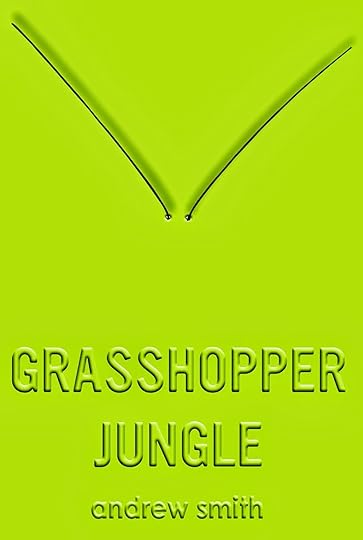
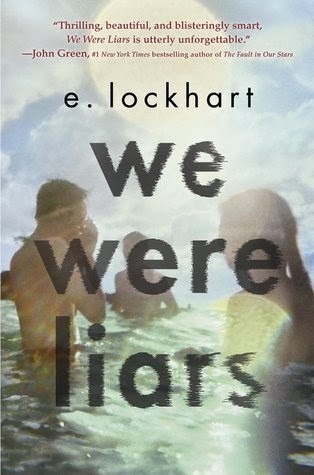
Without doubt, I think the two books generating the most discussion so far this year are Andrew Smith's Grasshopper Jungle and E. Lockhart's We Were Liars. And these discussions aren't without good reason: both are inventive, and both rise above because they're written by seasoned authors who've earned respect and proven they can both tell a good story and do so with strong, sharp writing.
That said, I think both novels aren't strong enough. Smith's novel sort of falls into the camp that Karyn talks about in her discussion of Midwinterblood last year: it's definitely well-written and there's a story here and that story makes sense but it's also a really bizarre story that I wonder if people have found to be exciting because it's weird and different even if they don't necessarily get it. I found there to be some deeply problematic aspects of the story in and of itself, primarily that it's got a lot of issues rendering a single female as a fully-fleshed, worthwhile being in the story (Shann becomes a baby-maker, even when Austin claims he loves her and the adult females in this story are all sad and medical drug-dependent). Is it a neat read? Sure. Is it a Printz? I think it falls apart and I think beyond the issues in story that will pop up, I think some of the construction itself might fail to hold.
E. Lockhart's We Were Liars is a bit stronger than Smith's novel, but I think it's one that will fall apart on subsequent reads. Maybe it's because I read and watch horror, but the plot itself was predictable to me from the onset. I knew what was going on, and because I knew, I spent the read collecting evidence for my hunch. To me, that read as the story's strings being too clear in the writing, and while the style itself is different, it feels overly constructed. The craft was very transparent to me, even when I wasn't looking at it, and I think when the committee sits down to reread, those things will pop out more.
Not relating to the Printz necessarily, but worth mentioning: the marketing on this book continues to drive me nuts because the twist isn't revolutionary. By playing up the idea the twist is that way, I think that the enjoyment of the book is tied up in whether or not the twist was successfully sprung upon the reader.
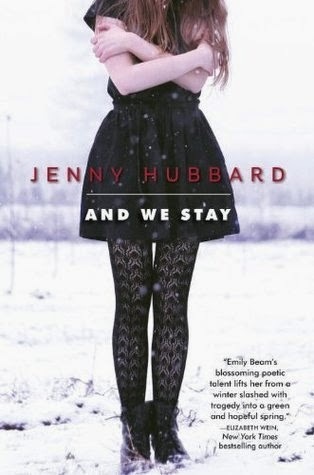
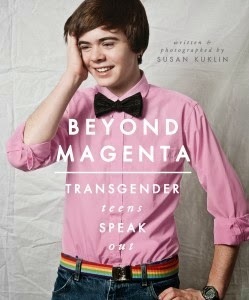
After the Smith and Lockhart books, I had to dig into Jen's spreadsheet to see what books have earned a number of stars. There's Laurie Halse Anderson's The Impossible Knife of Memory, but as I mentioned in my review earlier this year, this book suffers a pacing problem in the final act of the book. It certainly deserved the stars it earned, but from the purely literary standpoint from which the Printz discussion comes, it's not going to pass the test.
So then, Jenny Hubbard's And We Stay and Susan Kuklin's Beyond Magenta emerged in the starred reviews as contenders. I read Hubbard's book and thought it was pretty good. She earned a Morris honor for her debut novel Paper Covers Rock, and without doubt, her book is tightly written and constructed. My personal issues with the book, which rested on the time setting not being clear or necessary (and later clarified to me as being done to avoid social networking complications), may or may not matter to the committee, and I am willing to bet it won't matter much. This is maybe the strongest title so far this year from the writing and story aspect, and I think it's one that will be talked about as rising to the top of the YA literary pile this year.
I've not read Kuklin's non-fiction work, but I've read a handful of reviews of the title. Between the positive reception in those, as well as the reception it earned in the trade reviews, I think it's also a strong contender. I want to get my hands on a copy because it wasn't one I had had in mind to pick up before, but seeing it's earned so many stars (and so little discussion from what I've seen), it looks like a solid possibility.
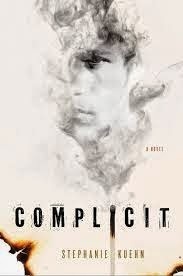
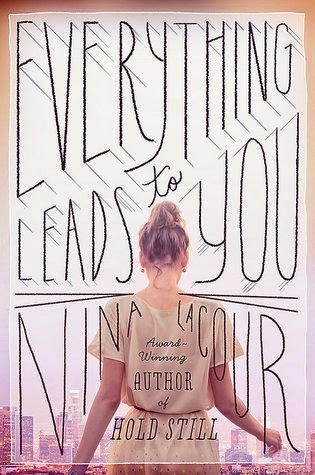
My last two predictions at this point are Stephanie Kuehn's Complicit and Nina LaCour's Everything Leads to You. Both were Morris winners and finalists respectively for their debut novels, and both titles earned starred reviews -- Kuehn's novel is at three as of this writing, but the possibility for it to earn more exists since it just came out. LaCour's has earned just one, but Printz books aren't necessarily ones that have garnered a slew of stars (nor even reviews, as White Bicycle proved). I reviewed Complicit last week and where I had issues with how the twist didn't work in Lockhart's book, the twist in Kuehn's was smartly executed and I think that it'll hold up on subsequent rereads.
As for the LaCour novel, I think the tight writing and compelling story will give this some discussion time, but I do wonder if the fact it's a romance (or love story?) will hurt its chances a bit. Not that the committee wouldn't discuss it fairly, but I wonder if the fact it's less traditionally literary will keep it from reaching the kinds of discussion I think it should. Then again, last year, Eleanor & Park earned an honor, which I'm still surprised/not surprised about.
A couple of other books at this point I think are contenders by virtue of starred reviews include Jillian and Mariko Tamaki's This One Summer -- so far the title with the most starred reviews and the last collaboration the team did, Skim, was certainly a title many thought had Printz potential.
I haven't yet read Kwame Alexander's The Crossover, but it's gathered a handful of starred reviews and while it skews on the younger end of YA, it's eligible. I've also got a feeling that John Corey Whaley's Noggin will be talked about but I can't say more because I haven't read it and haven't seen a whole lot of talk about it in the blogs I'm reading. I think that's because it's still relatively new, not because it's not a solid read.
And I bet that She is Not Invisible, another Marcus Sedgwick title, will be in the ring as a possibility.
As far as possibilities for titles publishing in the second half of the year, I've got Andrew Smith's second novel this year, 100 Sideways Miles, on my radar (it's already earned 3 starred reviews), Jandy Nelson's I'll Give You The Sun, and A. S. King's Glory O'Brien and the History of the Future in my mind. All of them have been talked about as solid contenders in the past, and I think that means they'll earn that sort of attention again. All of those books are ones I definitely plan on keeping an eye on to see where they may fall.
But at this point, I think the most honest assessment of Printz-worthy books is this: there are very few so far. It's been a less amazing year for YA fiction, and I think we might see some real surprises. I'm keeping my eye to smaller presses at this point to see what's standing out because I bet we see some White Bicycles not only in the final slate of titles come January, but I have a feeling as discussion among people who love doing mock events and discussing possibilities grows, there will be a lot of surprise possibilities.
That's what makes this fun, though.
The Morris
I haven't read as many books this year as I would have liked to, and I definitely have read fewer debut novels than I hoped. I still have half a year to get it together, so I'm kind of thinking in terms of what books have gotten great reviews and might be contenders to build the rest of the year's to-read list.
In fact, of the titles below, I've only read two. I have the Kiely and Cardi titles on my pile to get to sooner. Both earned some stars, and both sound like the kinds of books that would "fit" what the Morris committee looks for. The two titles I have read, Pointe and Far From You, were, without question, two of the strongest novels I've read so far this year in terms of writing, construction, and appeal, and I think both books left me really eager to see what Colbert and Sharpe will put out there next. Both were risky in terms of approach -- Colbert's because it tackled so much and did so in a way that was layered, allowing readers to delve into the complexity of Theo's life and Sharpe's because of how she wove two timelines together and offered up a main character in Sophie who wasn't reliable, thus forcing the reader to wonder what of her words were worth believing and which were not worth investing in.
For Cruel Beauty, I think the fact Kimberly loved it, as did a handful of other readers I trust, it's one worth keeping an eye on for Morris.
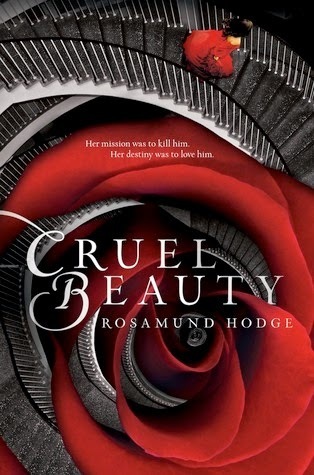
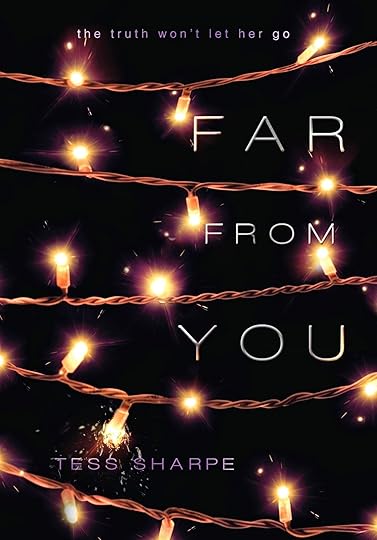
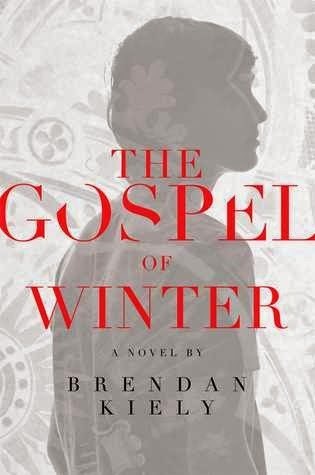
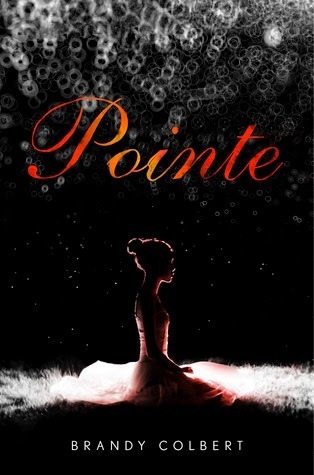

At this point, I'm still playing catchup on debuts from the first half of the year and haven't kept an ear to what's coming as well as I wish I had. But if I were to make a prediction, I suspect Robin Talley's Lies We Tell Ourselves is going to have some serious Morris discussion if it's written even half as well as the premise sounds.
Kimberly's Thoughts
For my predictions this year, I'm going to throw out three titles that I've read, plus speculate on a few that I've heard chatter about here and there. As before, I'll stick to SFF titles, since that's what interests me when it comes to discussions about award-winners.
The Printz
All of my Printz picks so far are dark horses. The Printz has been pretty kind to SFF titles the past few years (four out of the five past winners could arguably be called SFF in some way, and last year two of the honors were SFF as well), but I can't say I've read any that scream Printz to me - at least not yet. I think it's important to distinguish between titles that I loved and titles that are Printz-worthy, since those are two very different things. I've read a few books that I loved; I don't think I've read any that will get a Printz nod. Still, here are a few that have a slim shot, maybe.
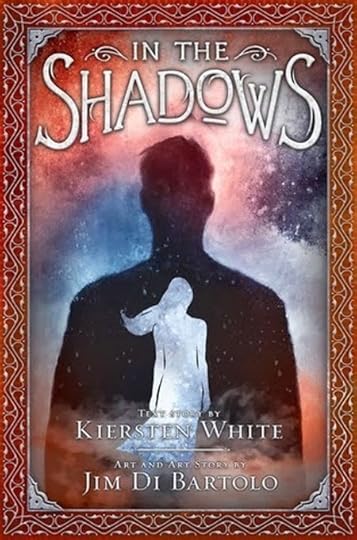

In the Shadows by Kiersten White and Jim Di Bartolo received very mixed reviews from review journals. Publishers Weekly says Di Bartolo's illustrations "suffer from a lack of pacing" and White's text is often "overshadowed by the instant impact of the pictures." Kirkus gives it a pretty critical review: "Ambitious but a failure both as a whole and in its parts." Booklist, on the other hand, gave it a starred review, calling it intriguing, enigmatic, enthralling: "The well-written words harmonize perfectly with the lushly executed, haunting images." I loved it, and I'm putting it up here because when the Printz goes SFF, it tends to go with the stuff that's weird or experimental (see: Going Bovine, Midwinterblood), and this is both. I think it's a deliberately challenging read that accomplishes more with its graphic/prose hybrid style than it could have otherwise.
The Winner's Curse by Marie Rutkoski may be even more of a long shot. As a society, we still tend to regard romances as lesser than other kinds of stories, and this is primarily a romance. But Rutkoski uses the romance to address huge, important themes (in addition to how and why we love one another, which is huge and important in itself): slavery, how we treat those we consider "other," conflicting loyalties, family, love of home. It's also got fantastic world-building (Rutkoski does this so well she makes it seem easy), great pacing, and smooth, lovely writing. Writing this blurb is making me want to re-read it, it's that good.
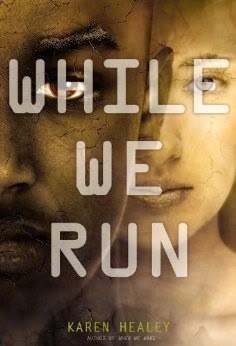
Karen Healey's While We Run rounds out my short list of contenders. I'm writing about it as a Printz possibility because it does what science fiction does best: reveal truths about ourselves and our world by writing about people and places that couldn't exist here and now. Healey's future is believable; it's a better place and a worse place than the world we live in now. Her characters are multifaceted and easily relatable to today's teens. Her exploration of a protagonist who has undergone severe trauma in a genre often characterized as "fluff" is incisive and admirable. I'm not sure how much the fact that it's a sequel would impact the judging, but it's better than the first volume and a terrific accomplishment in its own right.
A few other SFF titles that I've seen discussed a great deal as Printz possibilities include Grasshopper Jungle by Andrew Smith, Noggin by John Corey Whaley, and She is Not Invisible by Marcus Sedgwick. Both Whaley and Sedgwick have won previously, which makes their next books automatic contenders (they'll be discussed, at least). All three seem pretty weird (and that's saying something from an SFF fan). I'm not sure I'll read any of them, but they're worth knowing about.
Morris
I love the Morris because, as Kelly mentioned, appeal is a factor, and imperfect books - those that are exciting and lovely but flawed - can still win. I always feel like more traditional fantasy and SF have a better chance at the Morris than the Printz. They're also the ones I'm more excited to read when the winners and honorees are announced. Below are three I've read this year that I think may have a shot.
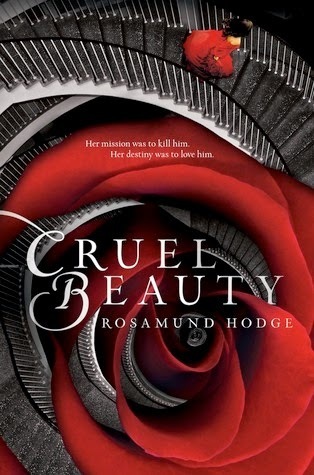
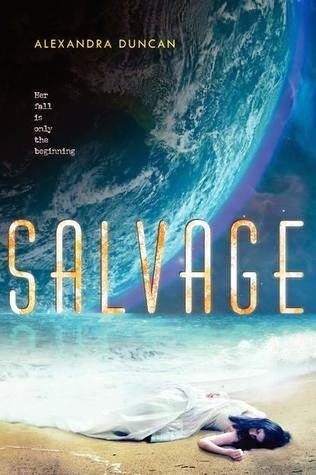
Cruel Beauty by Rosamund Hodge is the one I'm really hoping will get some recognition. It's hugely creative, beautifully written, and takes risks in its storytelling. The central love story is a bit darker than what you normally see, and although this is in large part a re-telling of Beauty and the Beast, that darkness is present in the Beauty as well as the Beast. It also weaves in elements of Greek mythology and other fairy tales while managing to keep the story unique. Its ambition is huge and I'm excited to see what Hodge does next.
Salvage by Alexandra Duncan is a sci fi feminist coming of age tale that masterfully takes the protagonist from sheltered naivete to wiser maturity. In a market crowded with action-heavy SF, Salvage stands out as being more introspective, perhaps a bit slower, but it's never boring. Duncan's ambition is vast here, too - she's created a number of different cultures complete with different slang and speech patterns. Her depiction of Ava as a girl overwhelmed in a world that doesn't understand her should resonate strongly with teens.
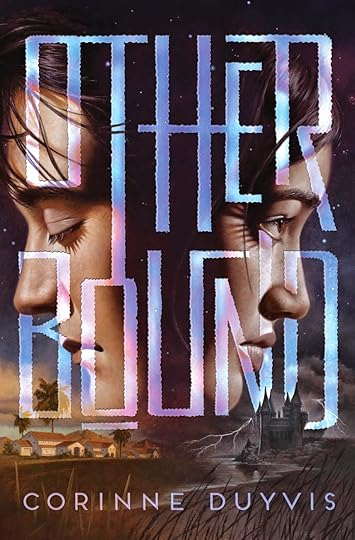
I just started Otherbound by Corinne Duyvis the other day, so I'm not very far into it, but I'm impressed by its originality. It features a teenage boy from our own world who sees through a girl from another world's eyes whenever his own are closed. Even when he blinks. This has led to a diagnosis of epilepsy. He's also disabled, having lost his foot in an accident as a young child. The girl whose body he inhabits is mute, her tongue having been cut out as unnecessary for her role as a servant. The concept is imaginative and the way it's written is clear and interesting. It's gotten starred reviews from Publishers Weekly and Kirkus.







 Related Stories2014 Youth Media Awards - Thoughts & ReactionsYouth Media AwardsOur Printz Predictions for 2013
Related Stories2014 Youth Media Awards - Thoughts & ReactionsYouth Media AwardsOur Printz Predictions for 2013
Published on June 25, 2014 22:00
No comments have been added yet.



